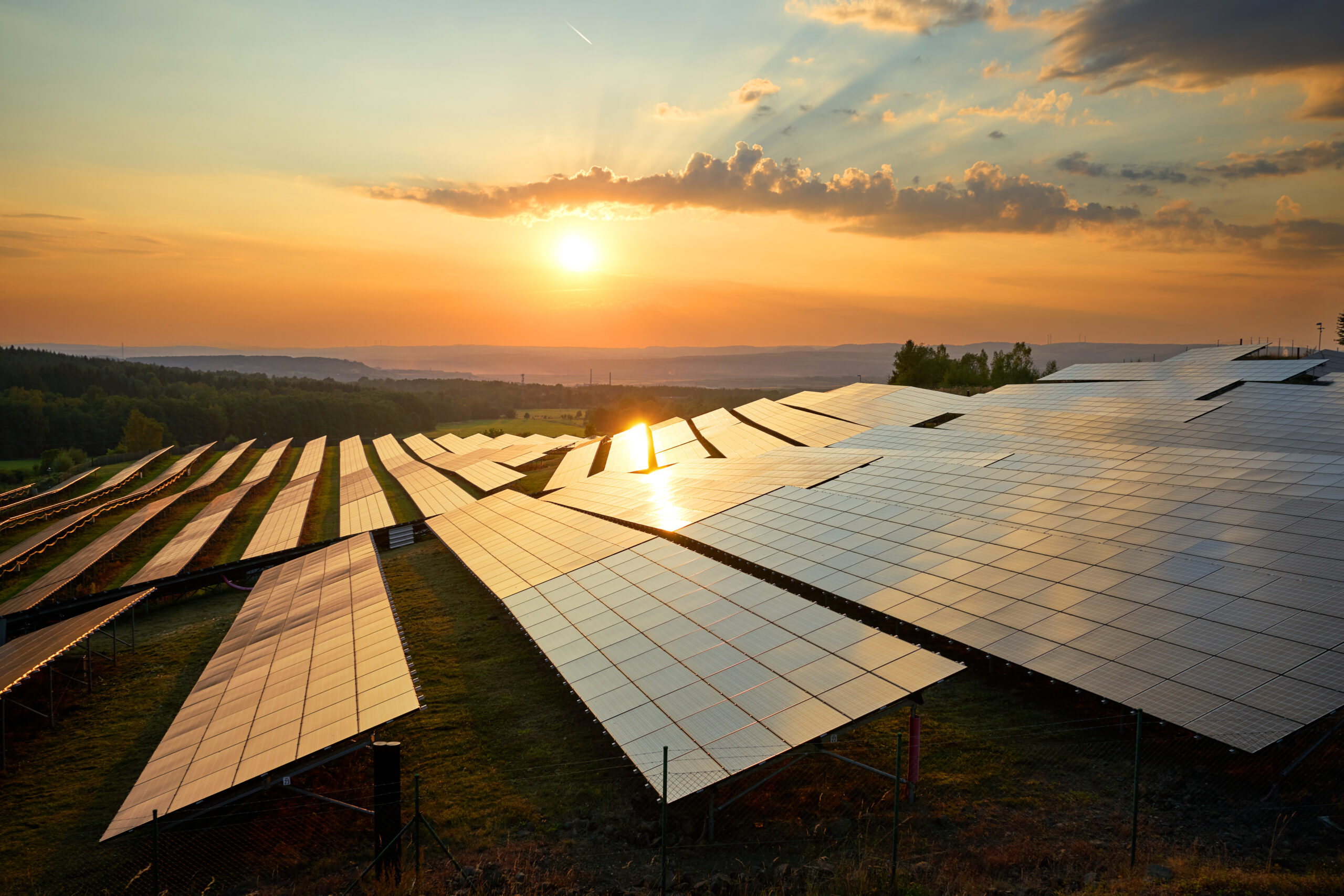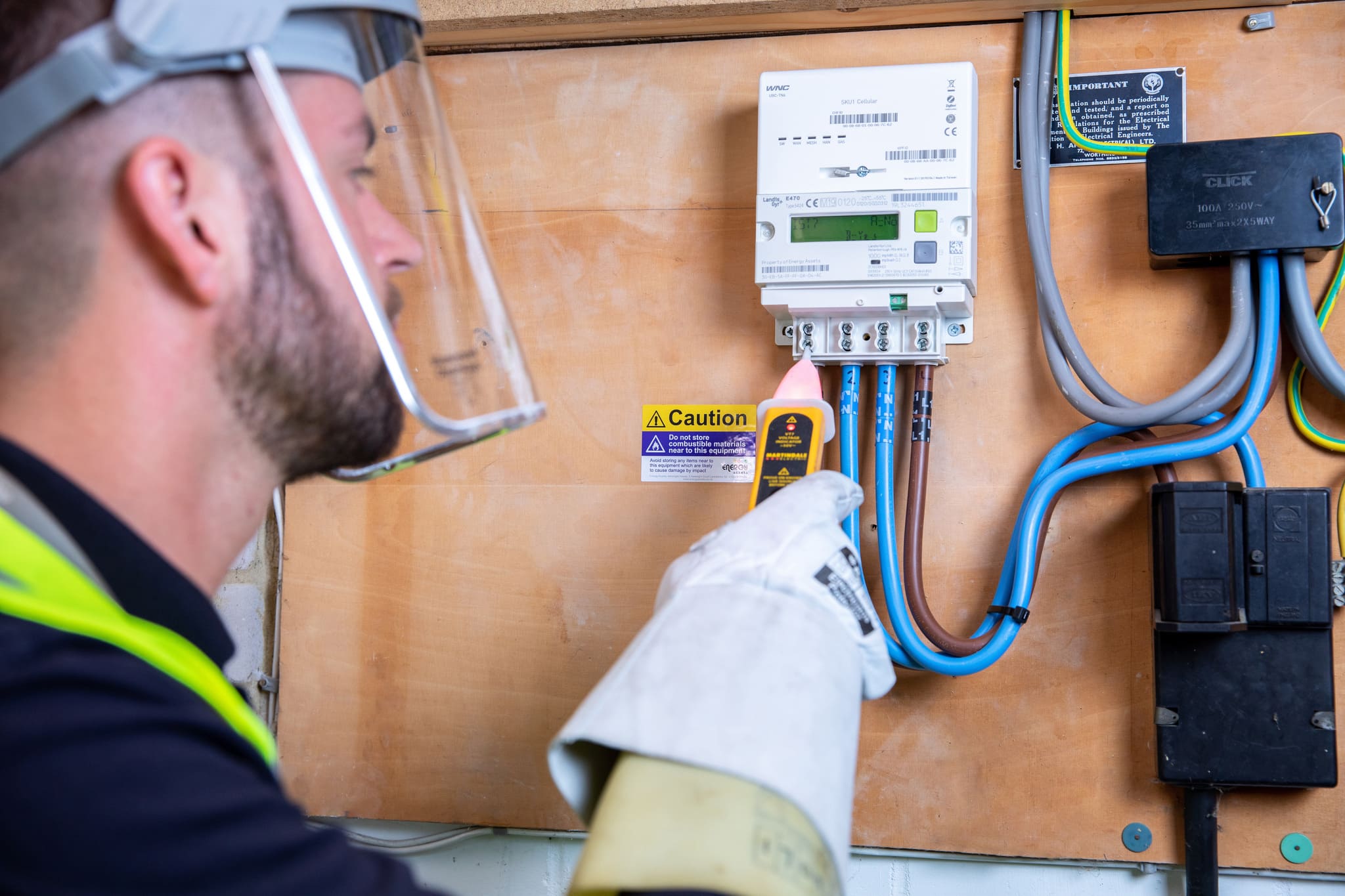At SmartestEnergy, we are passionate about driving the transition towards a sustainable and efficient energy future. We understand that keeping up with the latest industry jargon and terminology can be challenging, which is why we have created this glossary as a valuable resource for businesses, energy managers, and individuals seeking to enhance their understanding of energy-related topics. Whether you seek to decode acronyms, delve into emerging trends, or simply expand your energy vocabulary, our glossary is tailored to serve as your primary reference.

Energy Glossary
ADR Scheme: The Alternative Dispute Resolution scheme helps brokers further improve their service and processes – and ultimately – the experience for microbusiness customers.
Agreed Capacity: Refers to the amount of electrical load supplied to a property, as agreed with the local Distribution Network Operator and specified in the energy contract.
Automated Meter Reading (AMR): Is the term given to a system that provides automatic meter readings remotely, without the need for a physical visit. Consumption is recorded every 30 minutes.
Balancing Services Use of System Charges (BSUoS): Charges that are paid by electricity suppliers based on the energy taken from or supplied to the National Grid system in each half-hour settlement period.
Billing Period: The period of time for which you are charged for using electricity and gas.
Budget Plan: A payment method, which can also be referred to as fixed Direct Debit, where we offer to spread the cost of your energy consumption into 12 equal monthly payments. This can help avoid seasonal billing fluctuations and provide certainty over energy costs. The payment amount is reviewed every 3 months, using accurate smart meter readings, to ensure this is kept in line with actual usage.
Calorific Value: Is a measurement of the amount of energy contained in the gas. CV is usually quoted in megajoules per cubic metre (MJ/m3). Gas delivered to your premises will have a CV of between 37.5 MJ/m3 and 43.0 MJ/m3. This is continually measured by the gas transporters for each Local Distribution Zone and passed to your gas supplier daily.
Capacity Charge: A charge set by the local Distribution Network Operator (DNO), to cover investment, maintenance and repairs to the network. The charge is dependent on the Agreed Capacity of the property, and can also be called the Availability Charge.
Climate Change Levy (CCL): CCL is designed to encourage energy savings and the reduction of carbon dioxide emissions. The tax is imposed on all UK businesses and applies to the use of certain fuels and electricity in industry, commerce, agriculture and public administration.
Change of Tenancy (COT): When a customer is moving in or out of a premises, whereby change of lease, tenancy or ownership occurs and therefore responsibility of the energy supply at the premises with it.
CHAPs: A payment system which the Bank of England operates which allows payments of high value between UK accounts to arrive the same day they are made.
Data Collector (DC): An accredited organisation appointed by an energy supplier to carry out data collection for half-hourly AMR metering systems. It’s the DC’s responsibility to retrieve and validate meter reading consumption data, before passing this on to the supplier.
Deemed Contract: A contract which applies to a business energy customer at a premises without a signed and written contract for its supply. Deemed contracts will have a default rate for supply.
DESNZ: Department for Energy Security and Net Zero.
Distribution Network (DN): The operator responsible for the operation and maintenance of the local gas transmission system. There are currently eight DNs in the UK.
Distribution Network Operator (DNO): The operator of one of the 14 regional distributors responsible for maintaining the electrical network in the UK. All DNO charges are regulated by Ofgem.
Distribution Use of System (DuoS) Charges: These are the costs associated with the Distribution Network which are levied by the regional Distribution Network Operators.
Dumb Meter: Is not a meter we can connect to or obtain meter readings from. It would require the customer to physically read the meter.
ECOES: The centralised system that every energy supplier and distribution network operator can access. It is responsible for transferring data between energy providers to enable hassle-free and straightforward switching for all consumers.
Energy Consumption: Use of energy as a source of heat or power. Energy consumption will be measured by a gas or electricity meter and you will be billed for the amount you have used. Typical measure is kWh.
Energy Efficiency: Reducing energy consumption while still maintaining similar levels of output or performance. This is usually achieved by reducing wasted energy or increasing the power efficiency of appliances.
Energy Management: The monitoring and analysis of energy consumption. This can involve comparing usage, reducing wastage or optimising energy efficiency.
Energy Ombudsman: An independent arbiter that handles disputes between consumers and suppliers.
Estimated Annual Consumption (EAC): This is the estimated electricity that will be consumed on an annual basis.
Fixed Direct Debit: A payment method, which can also be referred to as Budget Plan, where we offer to spread the cost of your energy consumption into 12 equal monthly payments. This can help avoid seasonal billing fluctuations and provide certainty over energy costs. The payment amount is reviewed every 3 months, using accurate smart meter readings, to ensure this is kept in line with actual usage.
Fossil Fuels: Fuels such as coal, oil and gas which have been formed from the decomposition of ancient plant and animal matter.
Fuel Mix: The mix of fuels used to generate electricity. Electricity can be sourced from a variety of sources including coal, gas, nuclear and renewables.
Gigawatt: One million kilowatts
Gigawatt Hour (GWh): One million kilowatt hours
Green Electricity: Electricity generated from renewable sources which are considered to have a low environmental impact, e.g. wind or solar power.
Renewable energy is energy derived from natural sources that are replenished at a higher rate than they are consumed. Examples of renewable energy sources include wind power, solar power, bioenergy (organic matter burned as a fuel) and hydroelectric, including tidal energy.
Greenhouse Gas Protocol: The Greenhouse Gas Protocol, commonly referred to as GHG, is the primary standard for emissions reporting. Developed by the World Resources Institute, the GHG protocol has become the corporate standard for carbon footprint calculation — making it easy for suppliers and customers to report the emissions of a specific site.
Grid Supply Point (GSP): The point at which energy is taken from the National Grid transmission system into a local distribution system.
Half Hourly Meter: An advanced metering device, typically a smart meter, that provides data for a customers usage in half-hourly periods. The enhanced view allows customers to better understand usage to reduce costs, whilst allowing suppliers to more accurately balance supply with demand.
Half-hourly settlement (HHS): A type of settlement allowing suppliers/network operators to accurately balance supply with demand, driving down costs to supply energy and shifting towards a greener energy system in the UK.
Independent Public Gas Transporter (IGT): An independent firm responsible for maintaining regional gas supply network/s.
Kilowatt (kW): One thousand watts
Kilowatt Hour (kWh): One thousand watt hours–3,600,000 joules. Standard unit of energy consumption for consumer billing.
Maximum Demand: refers to the peak energy usage (in kWh) of a single Half Hour cycle during a calendar month, or between two scheduled meter reads.
Megawatt (MW): One thousand kilowatts, or one million watts.
Meter Point Administration Number (MPAN): An electricity supply number. This is a 13 digit reference. An MPAN is used to uniquely identify every electricity supply point in the country. This is sometimes referred to as the bottom line…
Meter Point Administration Service (MPAS): The organisation responsible for assigning the Meter Point Administration Number to all electricity and gas supply points in the UK. For more information, visit www.mpas-online.co.uk.
Meter Point Reference Number (MPRN): The unique 11 digit number assigned to your electricity connection and meter. Find it in the top right hand corner of your bill.
Meter Serial Number: The Meter Serial Number is an identification number assigned to every gas and electricity meter point in the UK, across both corporate and domestic energy customers. The Meter Serial Number may contain a combination of both letters and numbers, and can normally be found stamped, ingrained or attached to the front of the meter box.
Meter Type: The type of meter supplying energy to the premises, type include dumb, smart, half hourly, non-half hourly, AMR.
National Grid: The system operator of Great Britain’s electricity and gas supply. This includes England, Scotland and Wales. It is the company that manages the network and distribution of Electricity and Gas that powers all our homes and businesses.
Net Zero: Typically used as shorthand for the UK’s legally binding target for net zero carbon emissions across the economy by 2050. Net zero emissions is calculated by analysing the balance between the emissions created and the emissions removed from the atmosphere.
Non-Half Hourly Meters: Non-Half Hourly Meters require the user, or their energy supplier, to manually read the device to obtain a meter read. Non-Half Hourly Meters are normally reserved for domestic users, or small business users.
Ofgem: Ofgem is the Office of Gas and Electricity Markets. They are a non-ministerial government department and an independent National Regulatory Authority. Their role is to protect consumers by working to deliver a greener, fairer energy system.
Passthrough Costs: Cover the cost of transporting and distributing the energy to the businesses that we supply. They also contribute towards Government initiatives and interventions in the energy industry, including climate change policies and the move to low carbon economy.
Power Purchase Agreement (PPA): A contract between two parties, one which generates electricity (the seller) and one which is looking to purchase electricity (the buyer).
Pre-Payment Meter (PPM): Gas or electricity meter where the customer must prepay for energy.
Renewable Energy Guarantee of Origin (REGO): A REGO certificate is issued by Ofgem to the generator of electricity, for every megawatt hour (MWh) of renewable energy that is produced. Suppliers obtain these REGOs often to back the supply of renewable energy to the customer and evidence this has been provided by clean generation sources.
Smart Meter: A meter that automatically obtains regular readings by secure communication, to provide accurate billing, without the need for customer manual readings.
SME: Small and medium-size enterprise
Tariff: A tariff is the agreed contract rate and duration the customer has agreed to and is displayed on a customer’s account.
Terawatt (TW): Is equal to one trillion watts. The total power used by humans worldwide is commonly measured in terawatts.
Terawatt-Hour (TWh): A unit of energy equal to one million Megawatt-hours (one billion kilowatt-hours). One TWh is equivalent to the total electricity typically used by 250,000 homes in one year.
Third-party charges (TPCs): Collective term for all additional charges applied to the cost of imported electricity, primarily network (TNUoS, DUoS and BSUoS) charges and policy levies (CfD, FiT, RO, CM, etc).
Transmission: The transfer of a high-power electrical current from the UK’s power stations across the National Grid Company’s (NGC) nationwide grid system.
Transmission Use of System (TUoS): These charges are incurred when transmitting electrical power across the National Grid network. The TUoS rate is calculated by applying a rate charge to the TRIAD demand level.
Transportation Charge: The transportation charge is levied by the relevant Transporter and covers the cost of transporting gas through the relevant parts of the Gas Network. Transportation charges are calculated using three unique elements: capacity charge, commodity charge and site charge.
Unit Price: The price per unit of energy, calculated from three elements, including the wholesale energy price, infrastructure costs and the cost to serve.
Variable Direct Debit (VDD): When a customer’s Direct Debit is collected after their invoice has been received.
Xoserve: This is the agency owned by transporters to administer the processes that govern the gas supply chain. They operate systems that register each customer, with each meter and their supplier www.xoserve.co.uk



